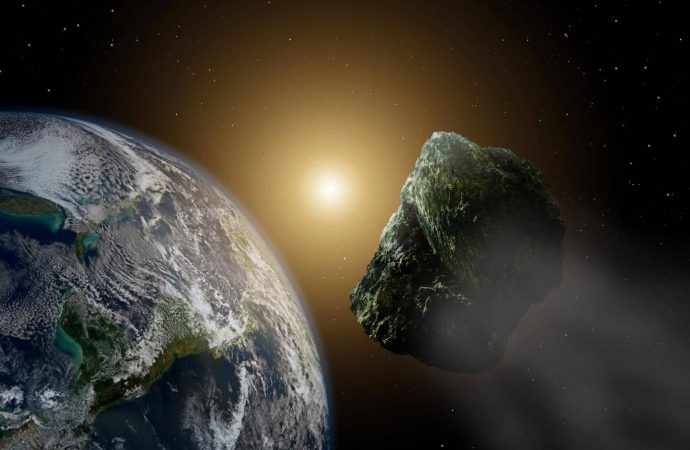Object first identified on Christmas Day will travel between our planet and the moon
An asteroid will pass by Earth today, only three days after it was first spotted by astronomers.
The space rock, named 2017 YZ4, was identified on Christmas Day, and it will pass between the Earth and the moon at around at 21,000mph.
It is estimated to be between seven and 15 metres long.
At its closest point, the asteroid will be around 140,000 miles away from Earth.
This is close enough for 2017 YZ4 to be classified as a “near-Earth object” – described by Nasa as a body that has been “nudged by the gravitational attraction of nearby planets into orbits that allow them to enter the Earth’s neighbourhood”.
Anything that comes within six million miles of us is classified as a near-Earth object.
“This is the first known asteroid to fly by Earth within one lunar distance since two such asteroids flew past us 35 minutes apart on 21 November, and the 52nd this year,” A Nasa spokesman told the Express.
This year Nasa discovered nearly 2,000 new near-Earth asteroids, but they estimate the locations of only around 3 per cent of the total number are known.
The new asteroid was observed by scientists working at the Mount Lemmon Survey Observatory in Arizona.
It is one of the Apollo asteroids, a group that regularly pass by our planet.
The newly discovered object is only slightly smaller than the object that entered the Earth’s atmosphere in 2013 and exploded in the skies over the Russian city of Chelyabinsk, injuring hundreds of people.
Larger asteroids, such as the 45-metre long 2012 DA14 that narrowly missed Earth in 2013, have the capacity to destroy areas the size of small cities.
Owing to the relatively small size of such asteroids, “astronomers cannot hope to find more than a small fraction of them,” according to Professor Alan Fitzsimmons, an astronomer at Queen’s University Belfast.
However, there is no indication that the 2017 YZ4 asteroid poses any threat to Earth
According to Nasa, there are no significant asteroids set to hit Earth for at least a century.
Source: Independent

































Leave a Comment
You must be logged in to post a comment.